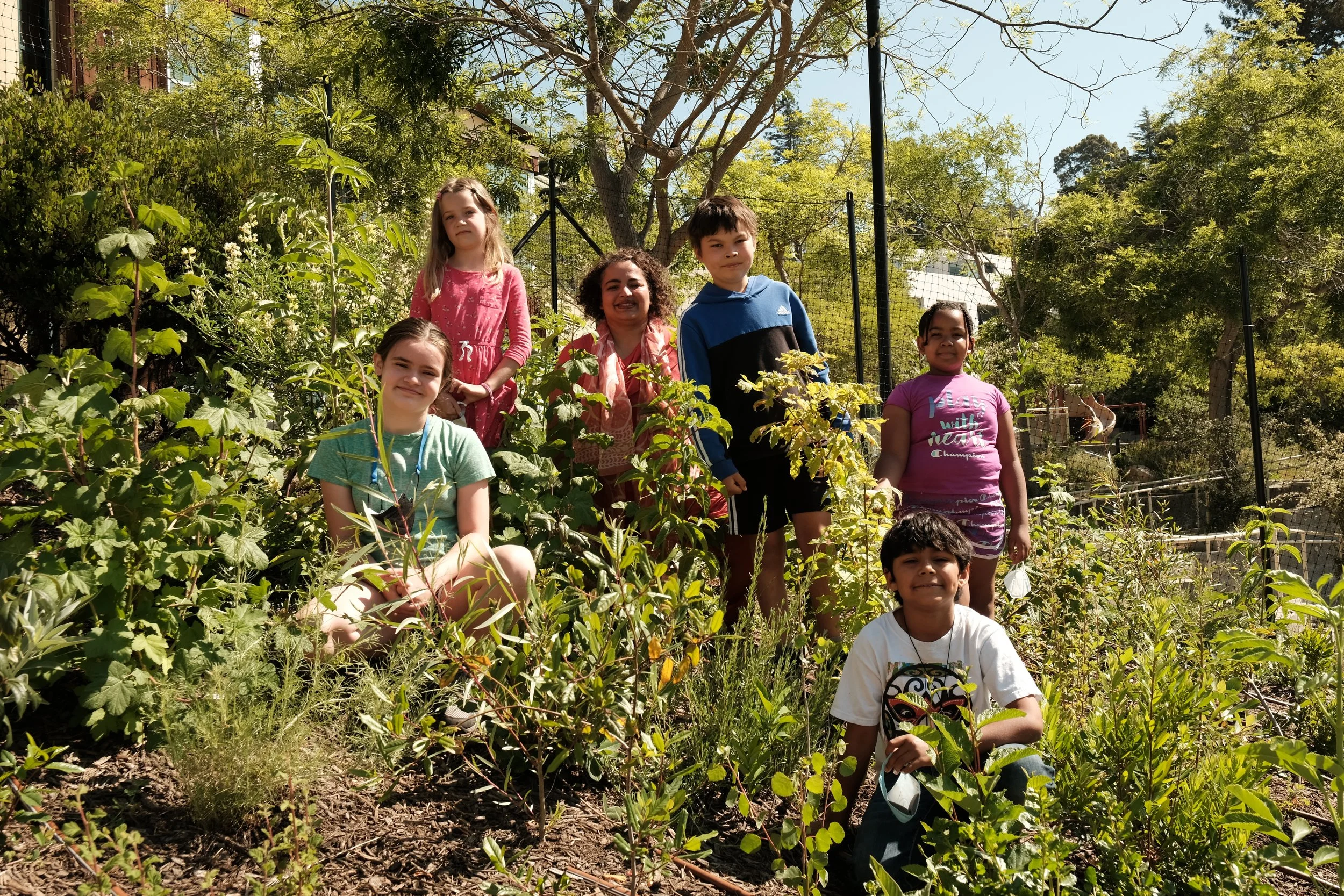
Green Pocket Forest
What is the Miyawaki Method?
The Miyawaki Method is a cutting edge approach to urban forestry and landscaping, developed by Japanese botanist Akira Miyawaki. These all native micro forests boost biodiversity, improve air quality, and lower temperatures around school buildings - all while utilizing minimal water.
Native saplings are densely planted and grow exponentially faster than traditional methods, all while thriving with little to no maintenance. The Miyawaki Method has shown remarkable success in urban landscapes across California, featuring 90%+ survival rates. Miyawaki forests not only rewild underutilized and neglected urban lands, making a space for Mother Nature to co-exist with humans in cities, but they simultaneously create beautiful green spaces for communities to enjoy.
Miyawaki Forest Benefits:
Present an immediate solution to urban heat islands and rising playground blacktop temperatures
Reduce school district maintenance costs, leaf litter, and water bills
Trees mature 10 times faster than conventional landscaping while using a fraction of the water
Native plants create ecological habitat for butterflies, pollinators, and birds
Inspire your school community to come together in environmental service
Promote student wellness and fresh air
Forests can fit into as little as 200 sq ft on a school playground or replace the front lawn!
How does a Miyawaki Schoolyard Forest grow?
-
Planting Day
All native drought tolerant saplings are 6 - 8 inches tall and planted at 3 per square meter.

-
18 months later
The forest is exploding with growth, biodiversity, and bird songs. The shrubs are 8 to 12 feet tall!

-
Three years later
Classrooms which baked in the sun are now shaded and cool. Birdsong, bees, and butterflies abound!

Who can practice the methodology?
Public School Teachers: Discover innovative climate literacy projects for your school. Learn how to integrate the Miyawaki method into your curriculum and inspire young minds.
Students and Youth: Gain community to work on cutting edge environmental solutions.
City Council Members, City Planners, Landscape Architects, Urban Foresters and Ecologists: Learn how to enhance micro green spaces and address urgent urban environmental issues.
School Board Members and Administrative Leaders: Bring innovative climate literacy themed project based learning to your district.
Homeowners and Large Scale Private Landowners: Understand how you can contribute to climate solutions right where you live.
Anyone who is concerned about climate change, drought, heat, or biodiversity. You’ll gain hope!
Watch the video:
Be a part of the wave that brings us back to nature. Together, we can create greener, healthier communities for generations to come.

